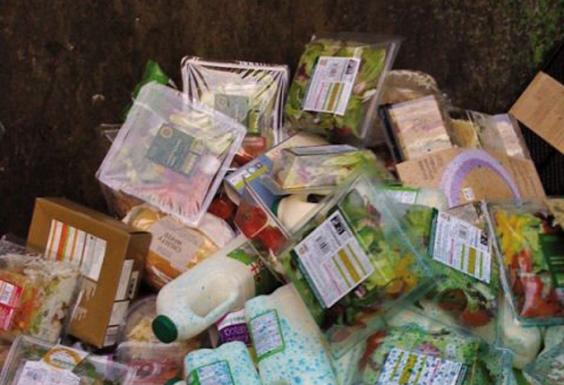Today I receive and publish an interesting article about the Italian food waste law recently issued: it allows food business operators to donate to other entities foodstuffs remained unsold, also if they passed the “best before” date (never the “use by”) and if they cannot be sold due to non compliant labels (beside errors on allergens and “use by” date). The contribute comes from Mariagrazia Semprebon – AgriLegal Consulting.
On 14th September 2016, in Italy, it came into effect the Law No. 166/2016, concerning provisions on the donation and distribution of food and pharmaceutical to limit food waste. The standard, once approved definitively, was published in the Official Journal of the Italian Republic on the 30th of August 2016.
This Act pursues the purpose “to reduce waste for each of the stages of production, processing, distribution and administration of food, pharmaceuticals and other products, through the implementation of some priorities”.
The rule is followed by a list of these priorities:
- Promoting recovery and donation of food surpluses for solidarity purpose;
- Promoting recovery and donation of pharmaceuticals and other products for solidarity purpose;
- Contributing to limit the negative impacts on environment and natural resources, reducing the production of waste and promoting reuse and recycling to extend the products life cycle;
- Contributing to achieve of the general objectives set by the “National Waste Prevention Program” (who was adopted pursuant Article 180, paragraph 1-bis of the Decree Legislative April 3, 2006, No. 152) and by the “National Food Waste Prevention Plan” contained therein, and contributing to the “reduction of the amount” of biodegradable waste presently consigned for landfill sites;
- Contributing to information, consumer awareness (with particular reference to younger generations) and research on the matters within the scope of this law.
What can be donated?
- Food, agricultural and agri-food goods that remain unsold or discarded from the food supply chain for commercial or aesthetic reasons, or proximity to the expiry date;
- Food products that have passed the date of minimum durability, if the packaging integrity and suitable storage conditions are guaranteed.
The destination of the goods suitable for human consumption should be provided to the poorest citizens, the destination of the goods non-suitable for human consumption should be used for animal consumption and/or composting.
For single donation below € 15.000 and in any case if the donor donates perishable foodstuff, it is not required any official document for the validity of the donation. If the donation of greater value does not regard perishable foodstuff, an official electronic communication must be sent to the financial administration offices, indicating date, time and place of goods destination and their total value.
Other important documents to provide are:
- A transport document serially numbered or an equivalent document;
- A quarterly statement by the beneficiary on the use of the goods.
Municipalities can apply a special reduction on waste tax to the companies that make these donations.
The Law states also that it is possible for receiving associations to collect free agricultural products directly from the farmers. These donations are carried out by and under the responsibility of the receiving association or non-profit organization. As we have seen the Italian law on the donation of food waste, unlike the French Law No. 138/2016, does not impose the donation of food waste to processors and supermarkets, but establishes several incentives, rationalizations and simplifications for donors and donees.


Fantastic news and congratulations to the Italians. Hope it spreads to North America. Previous generations would have considered it a “SIN” to throw out good food per comments from my 92-year-old mother who was raised in a home for orphans run by nuns in Spain.
LikeLike